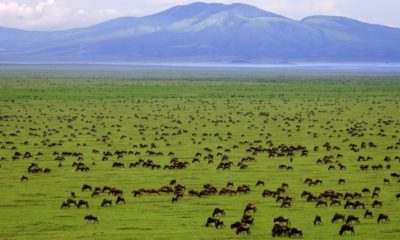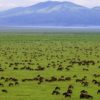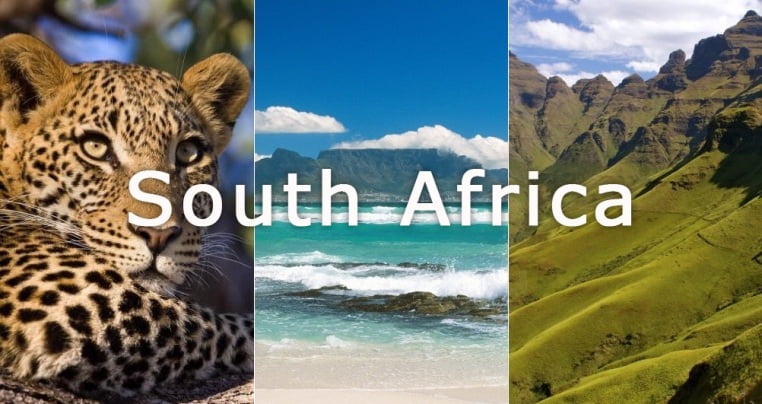Africa
Backpacking Ghana Need To Know
Basics
Languages:
Capital:
Currency:
|
Dial Code:
International Access Code:
Emergency Services Number:
Time Difference:
|
Recommended For Further Information On Ghana
Ghana (Bradt Travel Guides)
The below is a very basic guide. If you are heading to Ghana I highly recommend picking up a copy of Bradt’s; Ghana. Written by Africa expert Philip Briggs, it provides unrivalled detail and knowledge of this little-visited nation. It provides the most relevant advice on what to see, do and skip, plus where to eat and sleep…

Entry
Most visitors need a visa before travel. A three-month single-entry visa usually costs US$60. To apply and for official information visit a Ghanaian Embassy or your home government travel bureau.
Your passport should be valid for a minimum period of 6 months from the date of your visa application.
Yellow fever vaccination is required for travellers arriving from countries with risk of yellow fever transmission.
Overstaying without the proper authority can lead to detention or refused permission to leave the country until a fine is paid.
Getting Around
Two airlines – Meridian Airways Ltd and International (GH) Ltd – are subject to an operating ban or restrictions on flying to the EU due to safety concerns.
Don’t use ‘Tro-Tros’ outside the major towns and cities. Avoid travelling after dark, particularly in taxis.
More detail is to come in this section, but you can read about general advice regarding Getting Around When You Get There
Accommodation
Ghana doesn’t have a tourism sector aimed specifically at backpackers, so you may struggle to find hostels. However hotels and guesthouses are relatively cheap, but vary in quality.
Read more about Accommodation When You Get There
Food And Health
Food hygiene and safety is improving, but isn’t up to Western standards. Use your instincts; if the place looks dirty, don’t eat there; if your food isn’t piping hot, don’t eat it.
Water is not safe to drink, so stick to bottled or boil.
Medical facilities are poor outside towns. Emergency facilities are extremely limited. For serious medical treatment, medical evacuation will be necessary. Make sure you have adequate travel health insurance and accessible funds to cover the cost of any medical treatment abroad and repatriation.
Always contact your GP around 8 weeks before your trip to check whether you need any vaccinations or other preventive measures. Visit here for Recommended Vaccinations and read here for more about Travelling Health In General
Weather & Time To Go
Ghana is tropical with wet and dry seasons. The wet season is usually from March to November, but rain can occur at any time.
Communications
Internet is generally slow, but accessible in most towns, hotels and lodges. International calling cards are cheaply available in large towns.
Dangers And Considerations
Crime in Ghana is quite low, but incidents of petty and violent crime do occur. Avoid carrying large sums of money or valuables, use a hotel safe whenever possible and be particularly vigilant when withdrawing cash from ATMs. Take care at public beaches and avoid going to the beach on your own, as theft is a common problem.
Theft of luggage and travel documents occurs at Kotoka International Airport and in hotels. Make sure your passport is secure at all times and don’t leave baggage unattended. Be wary of offers of help at the airport unless from uniformed porters or officials.
Foreign visitors can be targeted by scam artists. If something sounds too good to be true, then it probably is.
Possession of small amounts of marijuana can lead to a prison sentence in excess of 5 years, usually after a lengthy and expensive legal process. Class A drugs like cocaine are likely to be laced with other dangerous substances.
Homosexuality is illegal.
It is against the law for civilians to wear any form of clothing made from camouflage material.
Carry a photocopy of your passport with you at all times, and put the original document in a safe.
Dangers constantly change. Always check with your foreign office (British Foreign Office webpage) or travel advice bureau for the latest information regarding your destinations safety.
Read more about Safety And Security here
Respecting Culture
Dress modestly in public. Ghana is a conservative and deeply religious country. Although modern and progressive attitudes also prevail, you should show respect for traditional values and morals.
Giving a polite greeting is normal etiquette, failing to return a “good morning” is considered very rude.
Eating with the left hand is also considered rude, but locals are understanding of other cultures and are unlikely to be offended.







